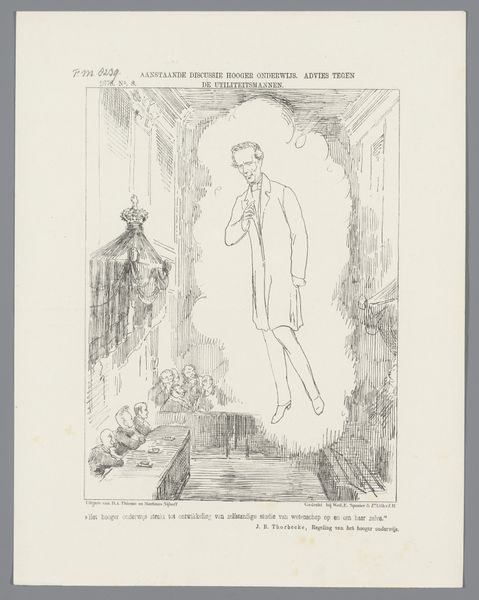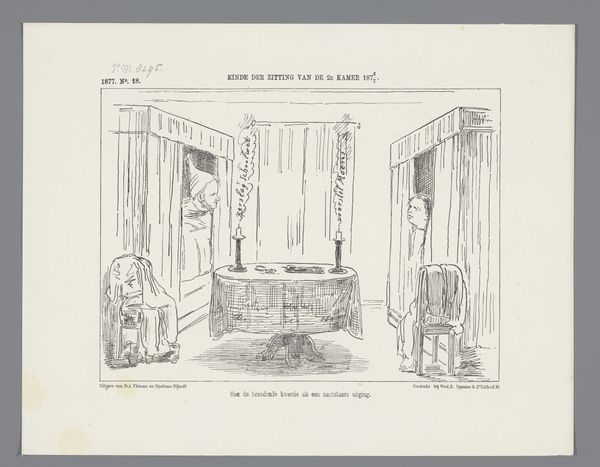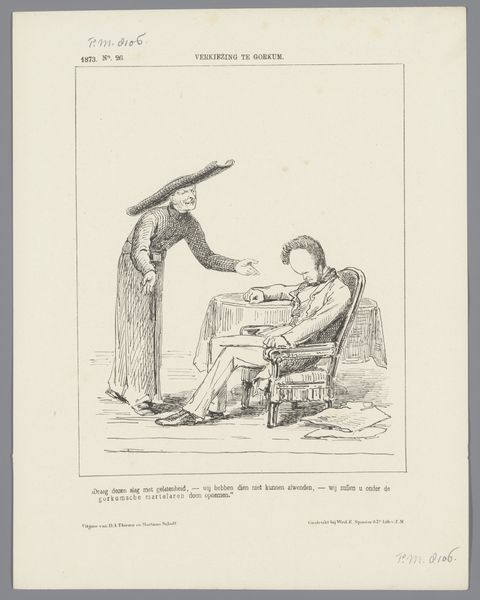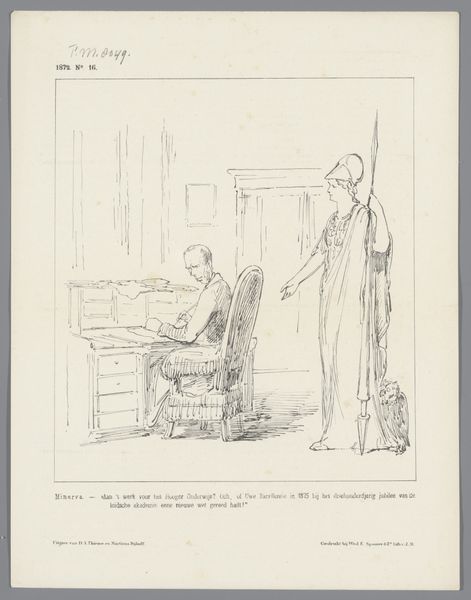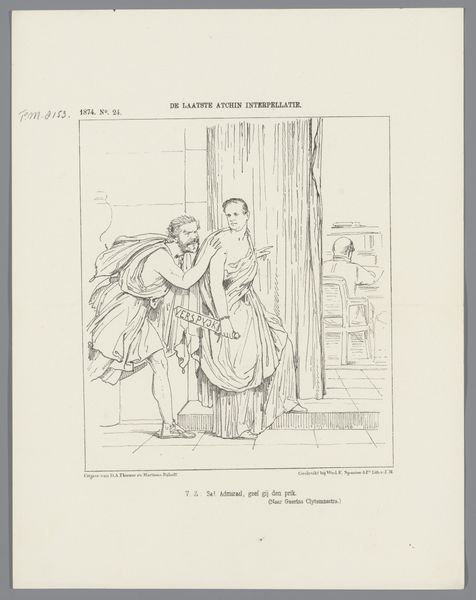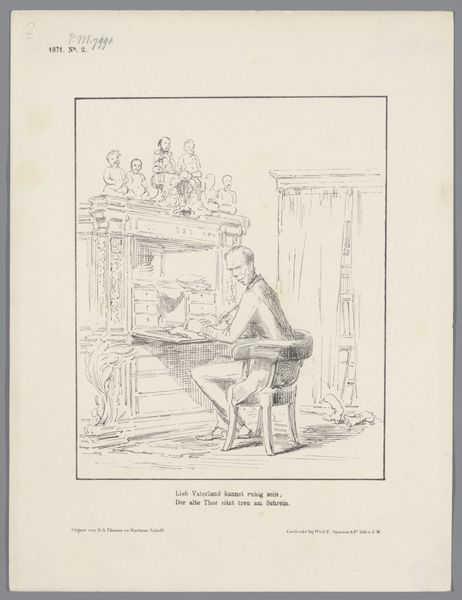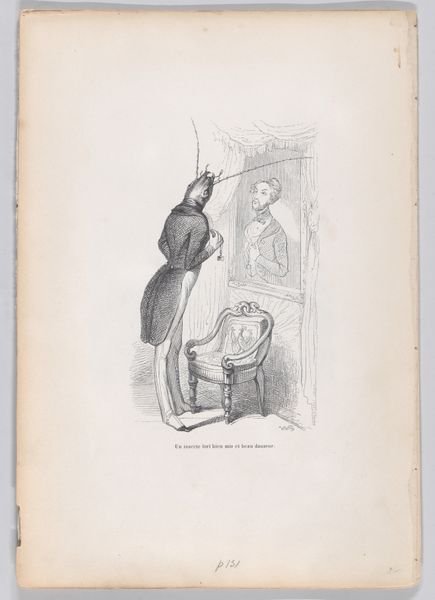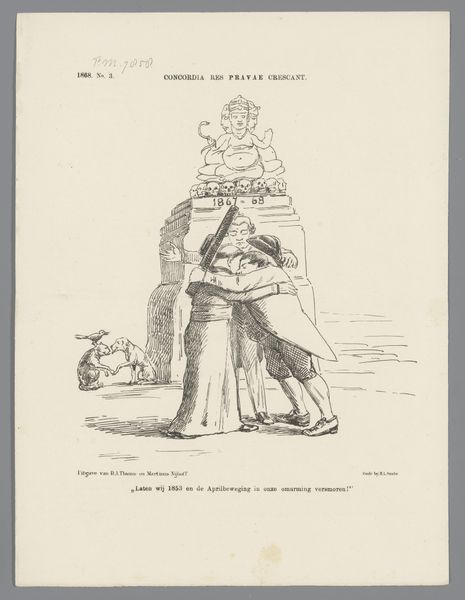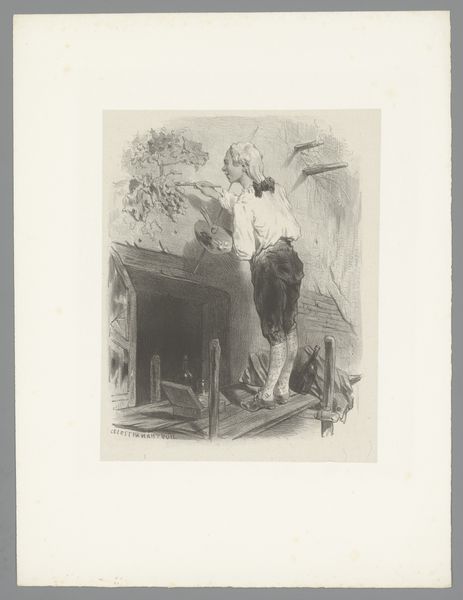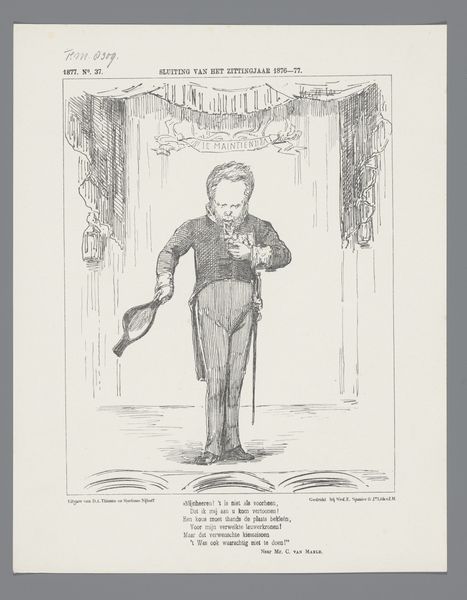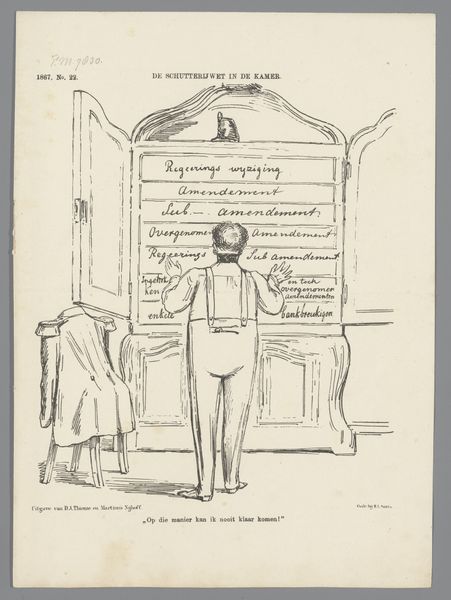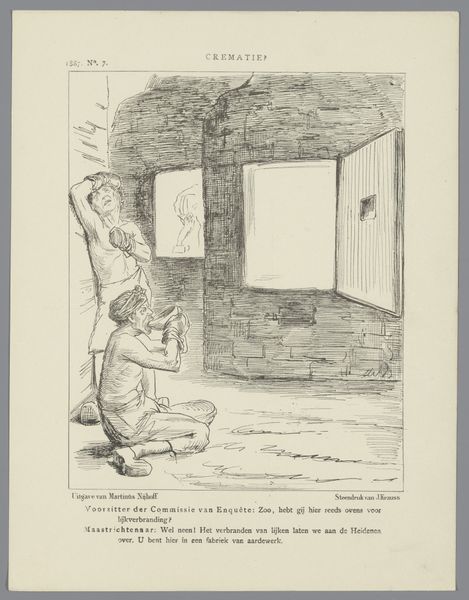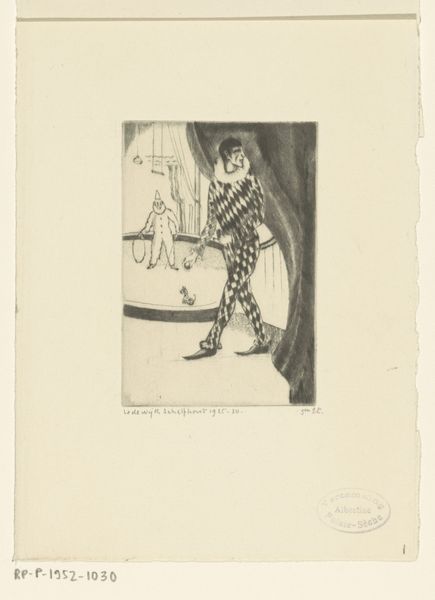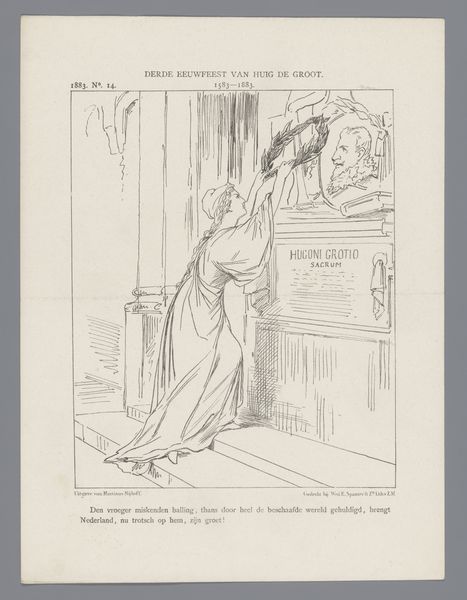
drawing, print, pen
#
drawing
#
quirky sketch
#
narrative-art
# print
#
caricature
#
sketch book
#
personal sketchbook
#
sketchwork
#
pen-ink sketch
#
thin linework
#
pen work
#
sketchbook drawing
#
pen
#
genre-painting
#
storyboard and sketchbook work
#
sketchbook art
Dimensions: height 275 mm, width 215 mm
Copyright: Rijks Museum: Open Domain
Curator: There's a fascinating energy in this lithograph, "Spotprent op minister Heemskerk," created around 1867 by Johan Michaël Schmidt Crans. The piece portrays a man struggling at a chalkboard. There's a raw, immediate quality to it, wouldn't you agree? Editor: Absolutely. It's frantic, almost comical. The stark black and white, the chaotic scribbles on the board, it all conveys a sense of frustration and intellectual deadlock. You immediately sympathize with this character’s dilemma. Curator: Note how Crans employs visual economy here; his pen-and-ink approach simplifies the scene, but every element contributes to the overall narrative. The figure's pose, the scrawled equation – it all serves to convey Heemskerk's perceived inability to solve complex political issues. Mathematics here seems a symbol of the insoluble nature of governing in a fractious period. Editor: It also speaks to a long tradition of caricature being used as a political weapon. Consider the theatrical backdrop: the minister presented center-stage, spotlit by public expectation. He stands symbolically "exposed." Are we laughing *with* him or *at* him? It’s a fine line. Curator: The equation is crucial to its resonance. In this caricature the board with a complex and unresolved algebraic equation serves as a metaphor. Editor: And doesn’t the equation capture a wider mood? This was a period of intense political debate in the Netherlands. Political gridlock represented through the metaphor of mathematics reflects larger struggles of the nation. Curator: The artist shrewdly uses this specific visual vocabulary of algebra as a form of commentary. Even today, someone unfamiliar with the specifics of Dutch politics can appreciate the cartoon's universal message about struggling with complex equations that do not add up. Editor: I’m drawn to the sense of timelessness the piece possesses; the anxieties around political competence remain potent. Looking at it through a contemporary lens makes one reflect on the lasting role of satire in holding power accountable. Curator: Yes, in that way, it invites reflection not just on Dutch history, but the very idea of governance. The chalkboard isn’t merely an object, but a stage where ideologies and reputations are tested under public scrutiny. Editor: Quite right, a deceptively simple artwork harboring multiple layers of commentary on power and the visual representation of governance.
Comments
No comments
Be the first to comment and join the conversation on the ultimate creative platform.
